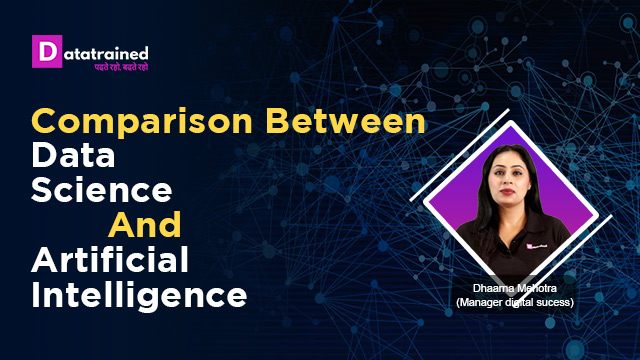In this video, you will know how data science is transforming our lives through the Manufacturing Industry. What Data Science actually means to Manufacturing Industry
Data Science has been efficient in tackling many real-world problems and is being used across industries to power smarter and better-informed decision making. With the increased use of computer systems for personal operations and day-to-day business, there's a need for smart devices, can find out human behavior and work patterns.
In manufacturing, operations managers are able to use advanced analytics to take a significant dive into historical process data, identify relationships and patterns among discrete process steps and inputs, and then enhance the elements which prove to have probably the greatest impact on yield.
Let's take a look at the advantages of using data science in the manufacturing sector.
Predictive analytics
Prediction models are aimed at forecasting the moment when the equipment fails to perform the task. 2 major types of preventive maintenance: time-based and usage-based. The biggest strength of preventive maintenance is the focus on planning. Also the prediction concerning future situations with the right equipment, the manufacturer may plan a pause or a shut down for repairing.
Fault prediction and preventive maintenance
Smart maintenance in layman terms is machines that can send data condition in real-time, and through software algorithms, predict and prevent malfunctions before they even happen. It’s about being able to pull all of this data together and also to visualize, automate, and optimize decision alternatives through software systems. That is smart maintenance.
Demand forecasting and inventory management
Demand forecasting and inventory management give the chance to control inventory better and reduce the need to store significant amounts of unnecessary products. Add-ons stay in the improvement of the supplier-manufacturer relations, as both can efficiently regulate their supply and stocks process.
Warranty analysis
Modern warranty analytics solutions help manufacturers to process vast volumes of warranty-related data from various sources and to apply this knowledge to discover where the warranty issues are rising and the reasons for their occurrence.
Robotization
Nowadays, it is common to deploy robots for performing daily routine/repetitive tasks, and those which may be difficult or dangerous for people. The AI-powered machine models help to acknowledge the ever-increasing demand. However, industrial robots largely contribute to increasing the quality of a product.
Computer vision applications
AI-powered advancements and computer vision applications found their role in manufacturing at the stage of quality assessment. Key advantages of the computer visions applications are:
· Improved high-quality control.
· Decrease in labor cost.
· High-speed processing capability.
· Continuous operability 24/7.
Managing supply chain risk
Supply chains have always been complex and unpredictable. With the help of data science, the companies may find it handy to predict potential delays and calculate probabilities of the problematic issues. The companies may use analytics to identify backup suppliers and successfully develop contingency plans.
















































